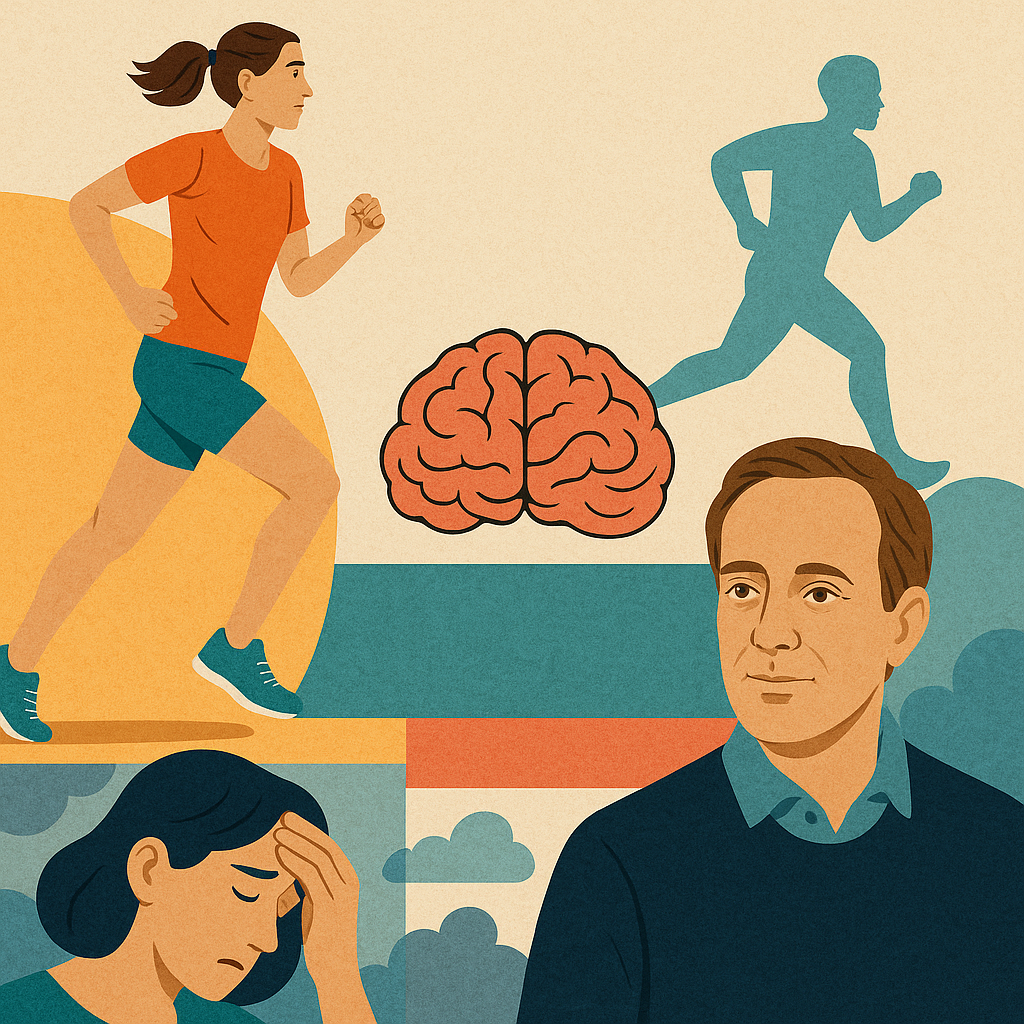Running and exercise are not only about improving physical health—they are also powerful tools for supporting mental well-being. Many people who struggle with stress, anxiety, or depression discover that movement can be just as important for the mind as it is for the body.
How exercise reduces stress
When you run or engage in physical activity, your body releases endorphins, often referred to as “feel-good hormones.” These chemicals act as natural painkillers and mood elevators. At the same time, exercise lowers cortisol, the stress hormone, which helps you feel calmer and more balanced. Even a short jog or brisk walk can create a sense of relief, almost like hitting a reset button for your nervous system.

Running and depression
Depression often makes people feel trapped in negative thought patterns. Running can break this cycle by providing structure, routine, and a sense of accomplishment. Each completed run, no matter how small, contributes to building confidence and self-worth. The rhythmic motion of running can also act as a form of moving meditation, allowing your brain to process emotions while your body stays engaged.
Scientific insights – Brain Strong
The Swedish author and psychiatrist Anders Hansen, in his bestselling book Brain Strong (Hjärnstark in Swedish), explains how exercise has direct and measurable effects on the brain. He describes how physical activity stimulates the growth of new brain cells in the hippocampus—the part of the brain linked to memory and emotion regulation. This is crucial, as a smaller hippocampus is often associated with depression. Hansen also shows how regular aerobic exercise increases resilience against stress and even helps prevent mental decline later in life. His research-backed message is simple but profound: if you want a healthier and more resilient brain, start moving.
A natural antidepressant
Unlike medication, running has no negative side effects. Instead, it brings long-lasting benefits for both body and mind. While it is not a replacement for therapy or medical treatment in severe cases, it can be a powerful complement. Many therapists and doctors now recommend physical activity as part of treatment plans for stress-related illnesses and depression.
Getting started
You don’t need to run marathons to experience the benefits. A steady routine of 30 minutes of moderate exercise, three to four times per week, can make a big difference. For beginners, even a mix of walking and running can spark positive changes. The key is consistency—not speed or distance.
Running and exercise give you more than stronger muscles and a healthier heart. They provide a natural, accessible way to handle stress, protect against depression, and strengthen your brain. As Anders Hansen puts it in Brain Strong, moving your body is one of the most effective ways to shape your mind.